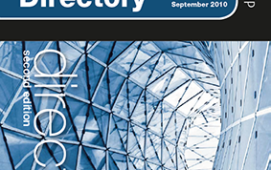
By David Brown, Chief Operating Officer, IPC.
We are indeed living through unprecedented times, with the COVID-19 virus impacting all major trading locations around the globe simultaneously. Traders at financial institutions may already be working at home in self-isolation, or else unable to work as they are ill. Others, able to travel and classified as essential workers, have opted for your disaster recovery site instead.
The diminished and dispersed trading-from-home workforce is creating increasingly complex scenarios for your Compliance Departments to manage. How do they continue to comply with prescriptive requirements around voice recordings and data capture? What happens when regulated trading activity – that in all ordinary times, must only be undertaken from official premises, and under strictly controlled conditions – is happening out of someone’s living room?
Data Challenges
Even before the ongoing health crisis, remote and mobile workforces were clearly the direction almost every industry was headed. However, the financial sector has to-date understandably been stymied by regulatory and security hurdles.
Virtual working opens a myriad of data security risks, including scams like phishing, ransomware, and skimming. Especially considering this may be the first-time employees have worked from home, or the first time for institutions enacting a remote-work policy, so many are still acclimatizing to new protocols. There are also huge compliance implications that financial institutions need to overcome.
Maintaining Resilience in a New Era
No doubt, these are extraordinary times. In the FICC markets, we are seeing incredible volatility in Treasury yields. There are heavy fluctuations in pricing, spreads are widening and it’s unclear where the liquidity really lies, yet financial institutions must continue servicing clients, discovering prices, accessing liquidity and managing risk.
For firms that are highly dependent on a small group of venues and counterparties for market access, it is troubling times indeed. But for those with access to a large, diverse community, this could be an opportunity to generate alpha and distinguish themselves from the competition.
Large networked communities create resilience. A successful community network offers its participants connectivity to an established, diverse and global financial ecosystem – one that includes a wide variety of counterparties for price discovery, liquidity and execution, such as brokers, dealers, inter-dealer brokers, exchanges, dark pools, hedge funds, asset managers, institutional investors, trade lifecycle services and market data providers. In other words, the information that firms need to find liquidity, and the ability to access it.
Secure and resilient networks that meet every compliance requirement can provide much-needed support. Those of us who have prepared for a digitally connected decentralized world will certainly do well and probably maintain business continuity.
The pandemic has touched every one of us: our families, our businesses, our communities, and our very way of life. In the chaos, the role financial markets play in underpinning world trade, commerce and supply chains – in other words, the role that they then play in ensuring that workers get paid, that people can buy food, that they can continue to access healthcare and medicines — is becoming crystal clear. In fact, several governments around the world have classified many financial services workers as essential. And, I’m proud to say that it appears market participants and their service providers are pulling together to support one another amid the emerging challenges.
Subscribe to our newsletter




